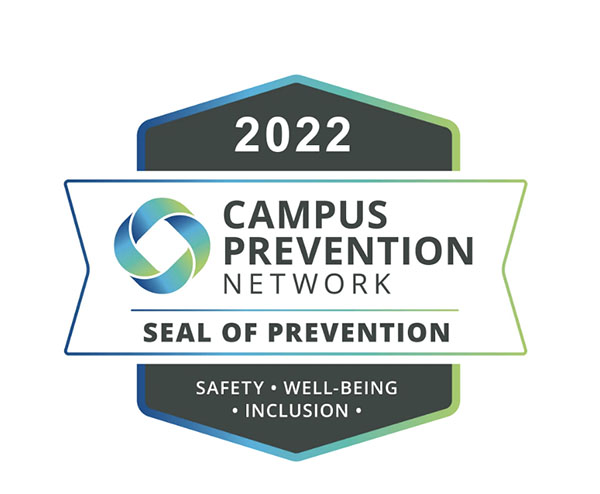Miami earns third straight Seal of Prevention
Designation is given for digital prevention strategies on issues of wellness, safety, and inclusion

For a third straight year, Miami University has earned the Campus Prevention Network (CPN) Seal of Prevention.
The Seal of Prevention is a designation given to institutions committed to comprehensive, evidence-based, digital prevention strategies on issues of wellness, safety, and inclusion. Miami is part of 12% of the nation’s colleges and universities to receive the CPN Seal of Prevention for 2022.
“It certainly is a great honor,” said Rebecca Baudry Young, director of Student Wellness. “It validates the work we’re doing, but it also helps us know we are doing research-based, evidence-based work to provide education for our students.”
The CPN evaluates more than 1,000 colleges, universities, and national organizations against evidence-based prevention principles to determine the quality of their digital programming. The inaugural Seal of Prevention was given in 2020. Miami has made the list each year.
According to the CPN, the Seal of Prevention “represents the highest standard for online prevention education.” Using a rigorous set of criteria, the Seal of Prevention ensures these programs are “making a measurable impact across the critical areas of sexual assault, alcohol and drug misuse, mental health, and diversity and inclusion.” The seal is awarded by Vector Solutions, which helps organizations prepare for more challenging workplaces.
Miami requires its students to take three online prevention modules on alcohol education, sexual assault prevention, and diversity, equity, and inclusion. Not only do the modules provide education, but they also serve to give students a level playing field upon arriving at Miami.
“Students are coming from different high schools and different lived experiences,” Young said. “With this programming, we can make some assumptions of education because we know they’ve completed these modules, so we are all talking the same language.”
A first-year experience course with a bystander intervention training component also is open to students.
There are five student organizations currently affiliated with Student Wellness – HAWKS peer health educators, Active Minds, Miami Hope, SASS (Sexual Assault Survivor Support), and MARS (Men Against Rape and Sexual Assault). One of the criteria to earn the Seal of Prevention is the number of students engaged in creating a culture of care and concern.
“Students can feel confident they are getting the best experience they can when they are learning about these topics, and they are hard topics,” Young said. “None of the things we talk about are easy. They are heavy topics, but they are real topics in the everyday lives of our students. It helps not only our students, but our faculty, staff, parents, and community members to know we are doing our best to help our students through these issues.”